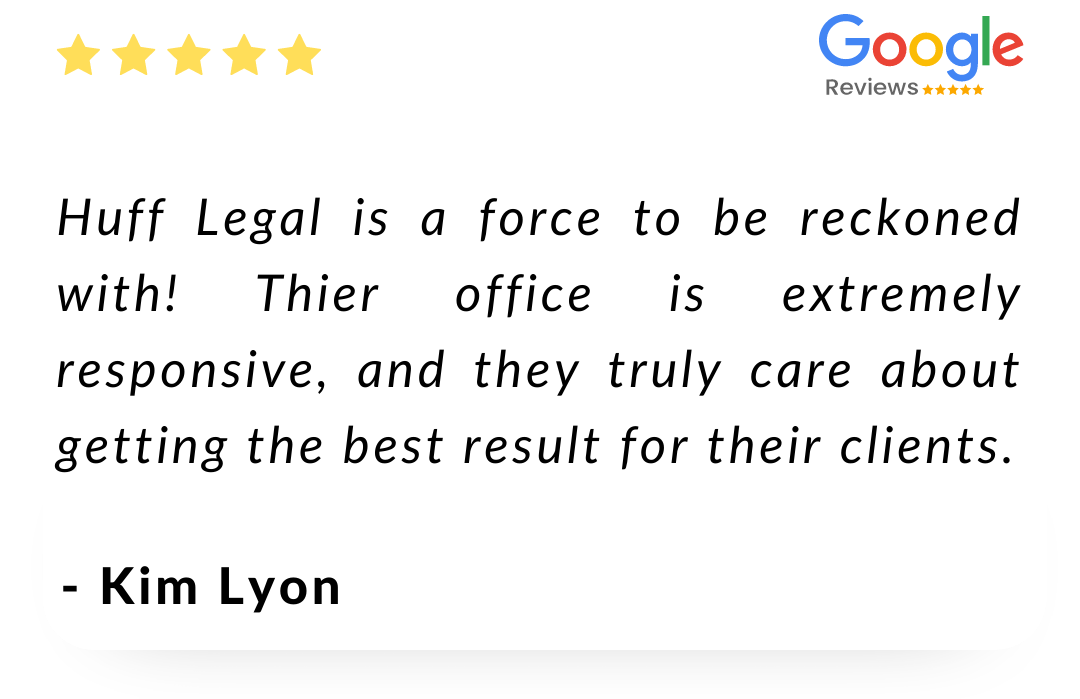What Happens at a Plea and Sentencing Hearing?
What Happens at a Plea/Sentencing Hearing?
A sentencing hearing is a crucial part of the criminal trial process in California. It occurs after a defendant enters a guilty plea, changes a plea from not guilty to guilty, or is found guilty by a jury. During this hearing, the judge determines the appropriate penalties for the offense committed.
After an arrest in California, defendants must go through the criminal trial process to determine guilt or innocence. The total violent offense arrest rate increased by 3.4% in 2022, from 308.1 per 100,000 population in 2021 to 318.5 in 2022.
The next step is often a plea or sentencing hearing if found guilty. Many defendants worry about what happens during this hearing, including whether they’ll go to jail or face other penalties. This article will walk you through what to expect, from the plea process to sentencing. You’ll better understand your rights and potential outcomes by the end.
How Do Sentencing Hearings Work in California?
In California, a sentencing hearing occurs after you’ve either pled guilty, have no contest (nolo contendere), or have been found guilty by a judge or jury. This hearing allows both you and the prosecution to present arguments about appropriate penalties. Sentencing hearings are more relaxed than trials regarding rules of evidence, meaning the process is quicker and more flexible.
When Does the Sentencing Hearing Take Place?
The timing of the sentencing hearing depends on whether you’re facing misdemeanor or felony charges.
- In misdemeanor cases, sentencing must occur between six hours and five days after your guilty plea or conviction, unless you waive this period. It’s common for sentences to be issued immediately after a guilty plea or verdict.
- In felony cases, the sentencing must be held within 20 days of the guilty verdict or plea, but the court can extend this by up to 10 days if necessary.
In some cases, delays occur to consider motions for a new trial, receive a probation recommendation, or determine mental health status.
Bail
If the sentencing doesn’t happen right after your guilty plea or conviction, the judge decides what happens next. The judge can:
- Keep you in custody.
- Order you to go into custody.
- Allow you to stay out on bail until sentencing.
In misdemeanor cases, you might be entitled to bail while awaiting sentencing, especially if you’ve applied for probation or filed an appeal. For felony cases, whether you remain on bail is at the judge’s discretion.
Request a Free Consultation
What Happens at a Plea Hearing?
A plea hearing is the step where you enter your official plea in court. This is when you let the court know if you’re pleading guilty, not guilty, or no contest to the charges against you. The outcome of the plea can influence what happens next in your case.
What is a Plea Hearing?
At a plea hearing, you have the chance to formally enter your plea. The judge will ask you how you wish to plead:
- Guilty: You admit to the crime and proceed to sentencing.
- Not guilty: You deny the charges, leading to further proceedings or a trial.
- No contest: You don’t admit guilt but accept the penalty without contesting the charges.
Plea hearings are usually brief but they’recritical to shaping the rest of your case.
Change of Plea
A change of plea happens when you decide to change your plea to guilty or no contest after initially pleading not guilty. This often occurs as part of a plea deal, where you agree to plead guilty or no contest in exchange for reduced charges or a lighter sentence. Changing your plea is a significant decision and usually marks the point where the case moves toward sentencing.
What Are Your Rights at a Sentencing Hearing?
During a sentencing hearing, you have several important rights to ensure a fair process:
- The right to be present: You must physically attend the sentencing hearing.
- The right to be represented by an attorney: Your lawyer will present arguments and evidence on your behalf.
- The right to present evidence: You can provide evidence to support a lighter sentence, such as mitigating factors.
- The right to propose an alternative sentence: You may suggest alternatives like probation or rehabilitation instead of jail time.
- The right to be informed of the charges and verdict: The court must clearly state the charges and the outcome of the trial.
- The right to speak on your own behalf (allocution): You can make a personal statement to the court before sentencing.
- The right to have your attorney speak for you: Your lawyer can advocate for a reduced sentence based on the evidence.
- The right to receive credit for time served: Any time spent in custody before sentencing is usually counted towards your sentence.
Clarification on Confrontation:
- Cross-examination rights: In most cases, you do not have the right to confront or cross-examine witnesses at a sentencing hearing. However, if there are factual disputes that could affect your sentence, you may have the right to an evidentiary hearing where witnesses can be cross-examined.
- Review of the presentence report: You have the right to review the presentence report, although some parts may be redacted.
Additional Rights:
- The right to appeal: You can appeal the sentence if you believe it was unjust or inappropriate based on the evidence or circumstances.
What Happens During Sentencing?
The judge announces your sentence, and your lawyer may present arguments for a lighter penalty. Victims or their families may also testify. Based on the case’s specifics, the judge decides between a minimum or maximum sentence.
Do You Go to Jail at a Sentencing Hearing?
You may be taken into custody immediately if sentenced to jail, but sometimes you’re given time to turn yourself in.
Mitigation and Its Effect on the Sentence and Plea Deals
Mitigating factors like a clean record or minor involvement in the crime can reduce your sentence. They also influence plea deals, which can lead to lighter penalties.
Concurrent vs. Consecutive Sentences
The judge decides if sentences for multiple charges are concurrent (served at the same time) or consecutive (one after the other).
How Is the Sentence Determined?
The judge uses sentencing guidelines to decide your penalty, considering your criminal record and the crime’s severity.
Reasons for Imposing a Selected Sentence
The judge must explain why they’ve chosen a particular sentence based on aggravating or mitigating factors.
Misdemeanor vs. Felony
Misdemeanors usually mean lighter sentences (probation or less jail time). Felonies carry heavier penalties, including longer prison terms.
Prison vs. Probation
The judge decides if you’ll face prison or probation, depending on the crime and your background. Probation allows you to avoid jail if you follow strict rules.

As Seen On












The accessory must have the specific intent to aid the murderer in avoiding arrest, trial, conviction, or punishment. Mere knowledge of the crime is insufficient; there must be a conscious desire to assist the perpetrator.
What Happens After Sentencing?
Once the judge announces your sentence, the next phase is carrying out the penalties. What happens after sentencing can vary based on the specifics of your case, whether you’re facing jail time, probation, fines, or other penalties. It’s important to understand the steps you need to take and what to expect.
How Long Do You Have to Turn Yourself In After Sentencing?
The judge may give you a specific date to turn yourself in, typically within a few days to a few weeks. Meeting this deadline is crucial, as missing it could result in a warrant for your arrest and additional penalties.
Understand Your Next Steps
After sentencing, it’s essential to clearly understand your obligations and next steps. Here’s what you might expect:
- If sentenced to jail, you need to know when and where to report for custody. If you were granted a delayed surrender, make sure you turn yourself in by the specified date.
- If you’re placed on probation, you’ll need to meet with a probation officer and comply with all conditions, such as regular check-ins, drug tests, or community service.
- You must ensure timely payments to avoid further penalties if you are fined or given restitution.
- If you’re appealing the decision, you and your attorney must quickly start the process, as there are strict timelines for filing appeals.
Contact Huff Legal Today
Understanding what happens at a plea or sentencing hearing is crucial for anyone facing legal proceedings. The process can be intimidating, but knowing your rights and the steps involved helps you feel more prepared. This guide is designed to provide clear and concise information so you can navigate your case with confidence.
We specialize in criminal defense, personal injury, and complex civil litigation at Huff Legal. Our experienced attorneys are dedicated to defending your rights and achieving the best possible outcome for your case.
If you’re facing legal challenges, contact us for a free consultation to discuss your options. Let us guide you through the process with compassionate and expert legal representation.
What Clients Say About Us





Schedule Your Free Consultation Today
LET HUFF HELP YOU
As a former police officer and patrol supervisor and his time spent as a United States District Court Judicial Law Clerk to the Chief Judge, Attorney Huff knows how to navigate all levels of the complex criminal law system. We also have more than 55 years of combined experience dealing with various complex criminal legal matters and have helped just over 1,500 clients over the past few years.
Why Huff Is Your Best Option For Criminal Defense
55+ Years of Combined Experience
At Huff Legal, we have more than 55 years of combined experience dealing with complex criminal legal matters, which can oftentimes be quite challenging. In order to get the outcome you deserve, you need a team of experienced attorneys on your side, who can help you navigate the legal system, so you can move past this situation and focus on the life ahead of you!
5 Star Rating on Google
We have a proven track record of success and are dedicated to our clients’ best interests. If you’re looking for a law firm that will always have your back, look no further than Huff Legal. Just have a look at some of our amazing client reviews over here!
1,500+ Happy Clients
Over the years, we’ve had the privilege of helping over 1,500 clients with their legal needs. When you work with us, you can be confident that you’re getting the best possible legal representation. We’re proud of our track record and our reputation for being a firm that delivers great results.
What Our Clients Say About Us


Sheila


Abel Resendiz


Manuela Frazier


Doris
Contact Huff Today
Request A Free Consultation
* Free consultations only available for Criminal Defense


In legal terms, an accessory to murder refers to an individual who aids, abets, or otherwise assists in committing a murder. While the specifics may vary across jurisdictions, California law treats accessories to murder as active participants in the crime, holding them accountable for their actions. In San Francisco Bay Area, there are two primary types of accessories to murder:
In the event that you find yourself in the Bay Area facing accessory to murder charges, you should first call a criminal defense attorney who can help you defend your rights and lessen the effects of the investigation. Contact an attorney at Huff Legal as soon as possible following your arrest. An accomplished attorney from Huff Legal will thoroughly examine your case, who will then develop a strategy and build a defense.
